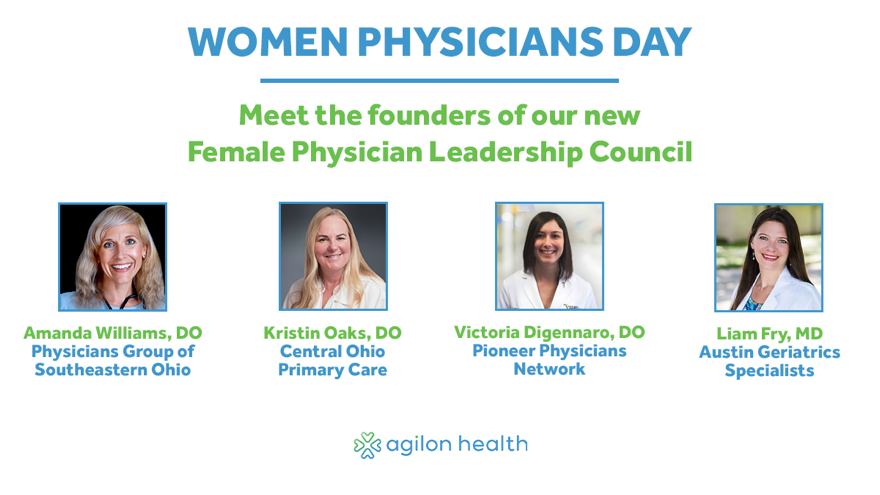Every year on February 3, National Women Physicians Day celebrates and honors women doctors across the U.S. while raising awareness about the specific challenges they face in the healthcare system. This year, the nature of those challenges is clearer than ever.
As just one example: A new report published in Health Affairs finds that there’s a 25% lifetime pay gap between male and female physicians in the U.S., which adds up to a difference of slightly more than $2 million over a 40-year practice—regardless of physicians’ specialties, hours worked or similar factors—and that the gap has persisted despite female med-school students now outnumbering men.

Fortunately, just as evident as the hurdles female doctors face are the opportunities to create greater inclusion for them, especially in the primary care sector—and several female PCPs aligned with agilon health are helping to spearhead that critical movement to change the status quo starting with the formation of The Female Physician Leadership Council.
Led by medical leaders who are an essential part of transforming the healthcare delivery system, the Council will focus on developing female leadership within the agilon practice network and the next generation of women PCPs to deliver value-based care within their communities to help the most vulnerable of patients – our seniors.
Perhaps the best reason to strive for greater gender parity in primary care is the benefits it delivers to patients. External data from respected outlets, such as The Lancet and JAMA, suggests that female physicians deliver better patient outcomes, including lower readmission and mortality rates. Female PCPs also deliver better value through lower medical loss ratio (MLR) compared to male PCPs. Investing in female PCPs is not just the right thing to do—it’s the smart thing to do.
In celebration of National Women Physicians Day, we asked the founding members of agilon health Female Physician Leadership Council to talk about the challenges and opportunities facing female primary care physicians today, their best advice for the next generation of female primary care physicians and what makes them most optimistic about the future of female physicians in primary care practice.
Their responses captured below and in this video are practical, enlightening, and optimistic about the potential today and the promise of tomorrow:

